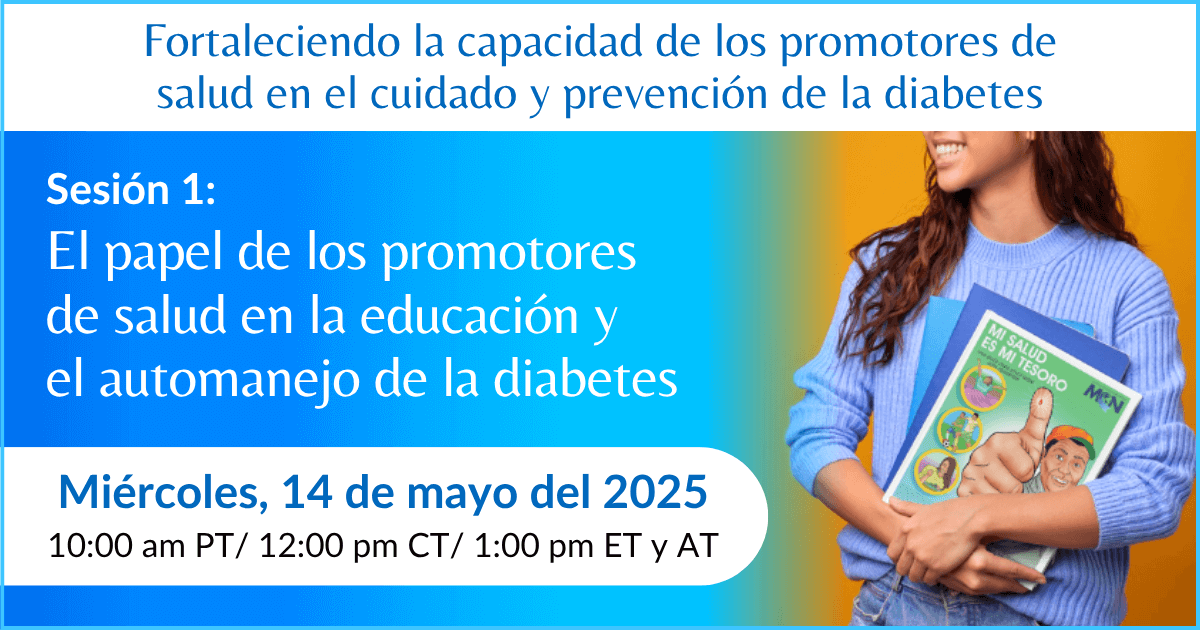
En esta sesión se abordará la creciente importancia del papel que cumplen los promotores de salud en la educación de pacientes y comunidades sobre el cuidado eficaz de la diabetes tipo 2 haciendo énfasis en su rol desde el ámbito de la salud pública.
Otras sesiones
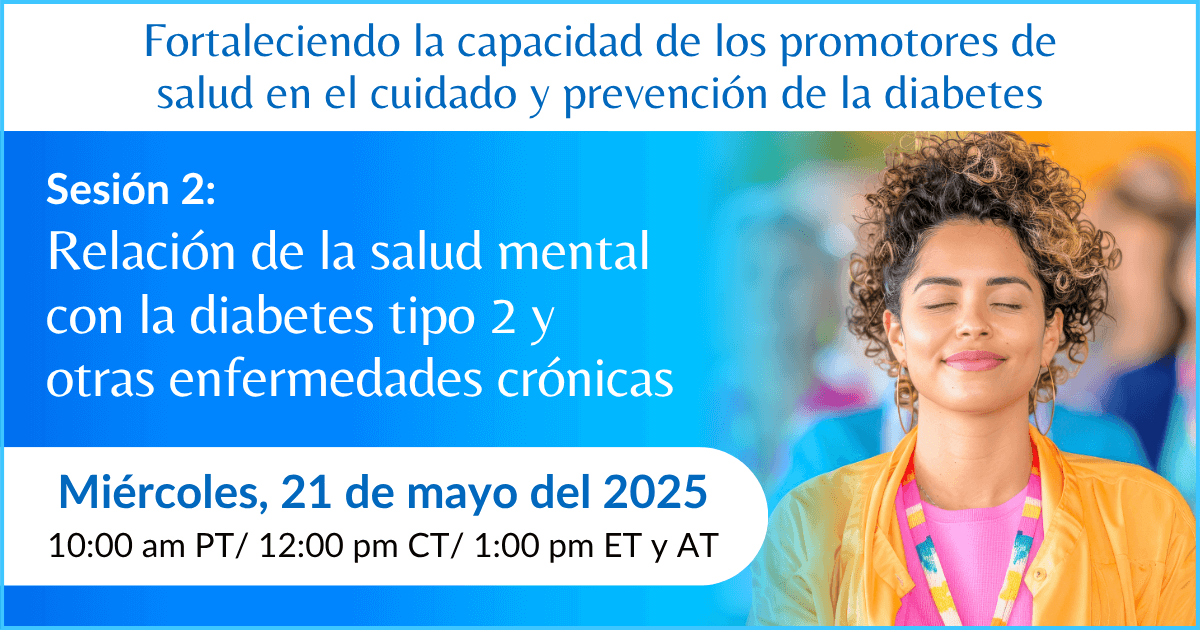
Relación de la salud mental con la diabetes tipo 2 y otras enfermedades crónicas
En esta sesión se describirá la relación que existe entre la salud mental y la salud física y cómo los promotores de salud pueden ayudar a los pacientes a reconocer los signos que potencialmente puedan interferir con el éxito de las prácticas de automanejo de la diabetes tipo 2.
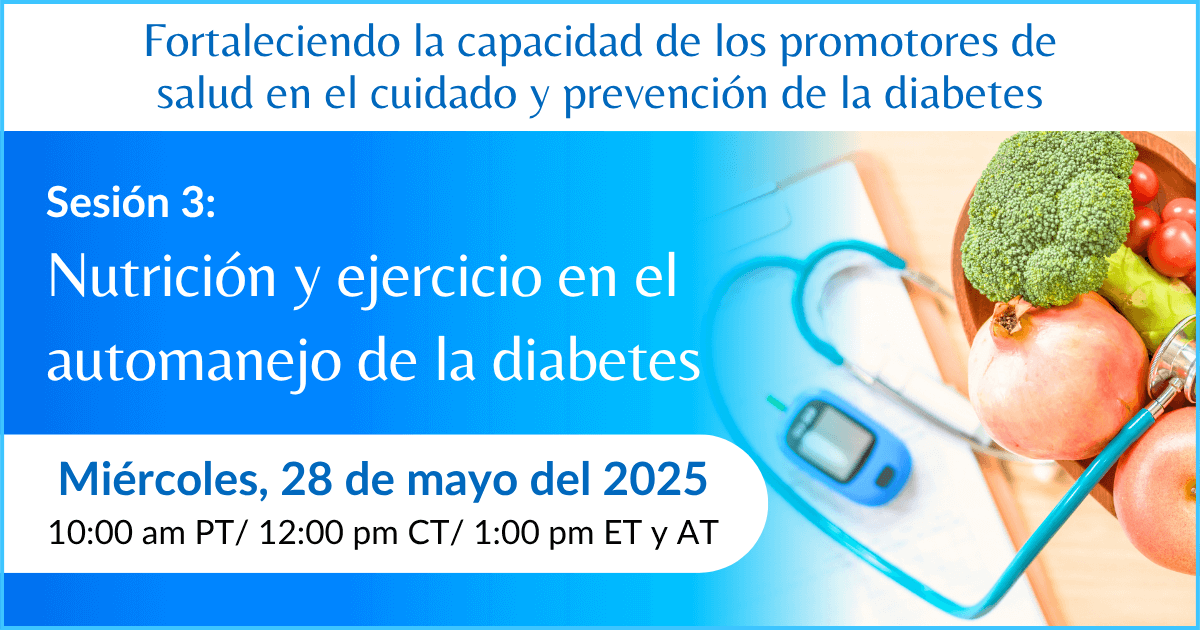
Nutrición y ejercicio en el automanejo de la diabetes
En esta sesión hablaremos de la importancia de hacer ejercicio y mantener una dieta sana como componentes clave para el éxito del automanejo de la diabetes. También conversaremos sobre las opciones de alimentos más apropiados para ciertas poblaciones de trabajadores hispanohablantes y recalcaremos la importancia de entender las etiquetas nutricionales.
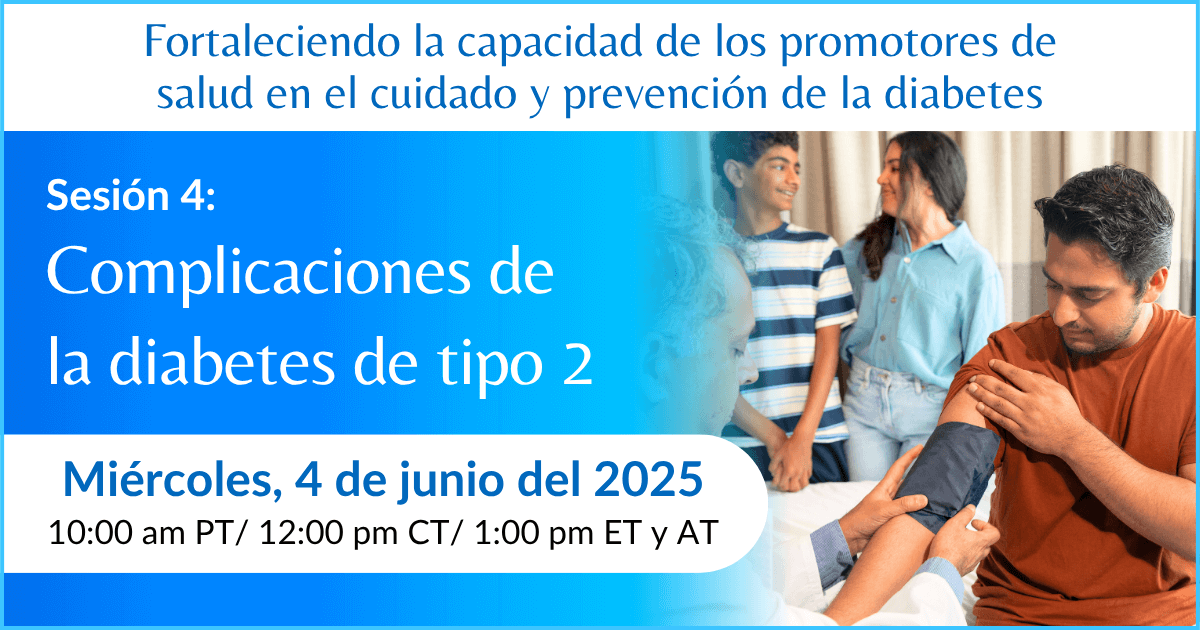
Complicaciones de la diabetes de tipo 2
En esta sesión se analizarán las diversas complicaciones de la diabetes tipo 2 y por qué surgen y cómo los promotores de salud y los pacientes pueden trabajar juntos para mitigar los efectos de tales complicaciones. Esta sesión proporcionará una revisión clínica más profunda al analizar los efectos que tienen los niveles descontrolados de HbA1c en varios sistemas del cuerpo.
Presenters

Alma
Galván
MHC
Director of Training and Community Engagement
Migrant Clinicians Network
Alma Galván, MHC, is MCN's Director of Training and Community Engagement. Galván has worked for over three decades to improve the health of agricultural workers. She has extensive experience providing technical assistance and developing curricula and educational materials for adults with limited English proficiency and limited literacy, community health workers, health professionals, health educators, and clinicians. Galván has worked extensively with MCN partners, community-based organizations, health agencies, and local and state health departments.
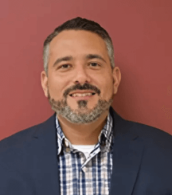
Dr. Rosado is a Clinical Associate Professor and Regional Director at the Florida State University Isabel Collier Read Medical Campus in Immokalee, Florida. He also serves as a psychologist at a Federally Qualified Health Center primarily treating children of Latino mobile farmworking families. Dr. Rosado is also the Director for the FSU Center for Child Stress & Health – a partner in SAMHSA’S National Child Traumatic Stress Network. Dr. Rosado holds a PhD degree from The Florida State University in Counseling Psychology and Human Systems. During his doctoral education, he interned at Yale University Medical School, where he completed a pre-doctoral Internship training program in Clinical and Community Psychology. He currently leads several intervention programs to address toxic stress and early childhood trauma in children from mobile farmworking families.
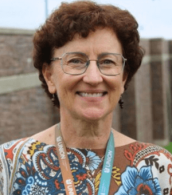
Wendy Shelly is a registered dietitian and certified diabetes education and care specialist. She worked training Promotores de Salud in El Salvador and Nicaragua for five years and for the past 20 years has worked in community health centers in Washington State, New York, and Pennsylvania, providing primary care nutrition counseling and education to people with chronic health conditions.

Dr. Eva Gálvez is a board-certified family physician at Virginia Garcia Memorial Health Center in Oregon, where she manages a busy panel of patients. She obtained her medical degree from the University of Washington School of Medicine in 2004 and has been working in federally qualified health centers since her residency training. Dr. Gálvez has served as a family medicine clinical instructor at the University of Washington School of Medicine.

